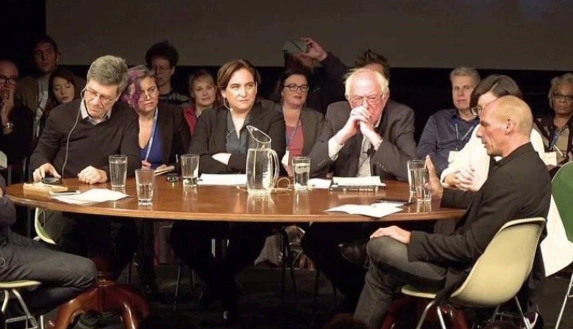If there is one term in political language that has always been used and is now back in style, it is “progressive”. For at least two centuries, this term —imprecise by nature— has been used without much rigor. For example, references have been made to the first Latin American “progressive wave”, while they sometimes include the governments of Ortega and Maduro, although they are everything, but progressive. Therefore, It shouldn’t be overlooked that when a category is used incorrectly, there is a risk that the analysis will lose consistency.
In any case, what is certain is that, when using the general connotation of that term, a handful of recently created international organizations have opted for this denomination, including the Progressive Alliance or the Progressive International, to mention the most far-reaching at a Latin American and global level.
The Progressive Alliance is a worldwide organization of social-democratic parties —coming from the Socialist International— and other parties considered progressive, ranging from the Italian Democratic Party (exPCI) to the U.S. Democratic Party.
Representatives of these forces met in Rome in December 2012 and decided to formalize the Alliance on May 22, 2013. The network currently has 140 parties and social organizations around the world and a coordinating committee of 30 parties that defines policies and positions. From Latin America, the socialist parties of Argentina, Uruguay, and Chile, the Workers’ Party of Brazil, and the Revolutionary Democratic Party (PRD) of Mexico, among others, participate in the network.
The birth of the Progressive Alliance took place in the midst of a controversy with the veteran Socialist International, founded by Willy Brandt at the end of World War II. The disagreement was two-way. On the one hand, several members of the historic Socialist International didn’t agree with the intended enlargement of the Alliance. On the other hand, several major social democratic parties, including the Swedish, German and Austrian parties, strongly criticized the core leadership of the Socialist International, led by its Secretary General, Luis Ayala, from the Radical Party of Chile—who has been in office since 1989.
The result of this divergence has prompted a good number of the socialist and social democratic parties of the Socialist International to participate in the Progressive Alliance. But the parties most critical of Ayala’s leadership have “frozen” their participation in the Socialist International.
In Latin America, this situation has been reproduced. Several parties belong to the Socialist International and also to the Progressive Alliance, as is the case with PS and PPD in Chile. In other countries, the parties are divided, as in Mexico where the PRI is part of the Socialist International, while the PRD is registered in the Alliance. Or in the case of Argentina, where the Radical Civic Union remains in the historical organization, while the Socialist Party is affiliated to the Alliance.
Just a few years later, another international organization emerged, which, despite using the same “progressive” term, presents a very different approach: the Progressive International. Since its origin, being a product of the relationship between the alternative European movement, DiEM25, of former Greek finance minister, Yanis Varufakis, and the Institute of U.S. Senator Bernie Sanders, the PI refers, in general, to groups ideologically located to the left of the left.
In the old continent, after the breakup of Varoufakis with the populist Syriza government, led by Prime Minister Alexis Tsipras, the former finance minister raised the need to create an alternative international space to escape the constrictions of the existing one. Thus, together with other minority groups, such as the Podemos party in Spain, he formed DiEM25, which entered into talks with the Sanders Institute, to end up founding the Progressive International. In Latin America, this organization is integrated only by social and communication organizations, but few political parties—although one of them is Convergencia Social, the formation led by Gabriel Boric, the current president of Chile.
One of the main differences between the two other organizations is in determining the limits of the term “progressive”. For the Progressive Alliance, there are well-defined limits regarding respect for democratic institutions and human rights. In the Progressive International, which is composed of currents of thoughts ranging from social democrats to populist options, these limits are more lax. Consequently, the Progressive Alliance excludes from that denomination regimes such as those of Ortega, Maduro or the Cuban autocracy. The Progressive International, which counts in its Council with populist leaders such as García Linera, the former president of Ecuador Rafael Correa, or Varufakis himself, includes them.
Due to these differences, there are hardly any parties that would like to combine their participation in the PI with their membership in the Alliance. An exceptional case is Costa Rica’s Citizen Action Party (Partido de Acción Ciudadana), which is part of the Progressive Alliance and has always been present in the Council of the PI through its MP, Patricia Vega, in addition to having the sympathy of various sectors within the party. The other leftist National Liberation belongs only to the SI. By the way, it would be necessary to study how it has been possible that a party introducing itself as progressive in different instances, has suffered an electoral debacle of such magnitude that leaves it outside not only the government but also the parliament.
Finally, and returning to the idea that a new wave of non-conservative governments is emerging in the region, it should be noted that this new “progressive wave” differs from the previous one in that it shows much less populist temptations and, consequently, keeps its distance from the authoritarian regimes of Venezuela, Nicaragua, and Cuba.
Translated from Spanish by Ricardo Aceves











